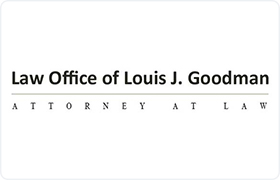Dublin DUI-DWI Lawyer, California
Sponsored Law Firm
-
 x
x

Click For More Info:
-
Louis J Goodman Attorney At Law
1290 B St Suite 307 Hayward, CA 94541» view mapCriminal Defense Law Tough, Experienced, and Professional
If you have been charged with a crime in Alameda County, California, contact The Law Offices of Louis J. Goodman.
510-582-9090
FREE CONSULTATION
CONTACTIvan O B Morse
Trusts, Estate Planning, DUI-DWI, Criminal
Status: In Good Standing Licensed: 43 Years
Nabiel C Ahmed
Sexual Harassment, Domestic Violence & Neglect, DUI-DWI, Criminal
Status: In Good Standing
Michael Francis Brown
DUI-DWI, Criminal, Personal Injury, Accident & Injury
Status: In Good Standing Licensed: 31 Years
 Louis J. Goodman Hayward, CA
Louis J. Goodman Hayward, CA Practice AreasExpertise
Practice AreasExpertise
